Saturday, January 03, 2009
Friday, January 02, 2009
What to do when you have no kids
5 Reasons To Travel When You're Young
Posted: 18 Dec 2008 02:54 PM PST
 Traveling is unarguably one of the most gratifying experiences a person can have in their lifetime. Traveling awakens the soul, stirs the senses and paints the world in a new light. It may seem like a pastime for only a certain kind of person, but in all actuality, anyone and everyone can and should travel.
Traveling is unarguably one of the most gratifying experiences a person can have in their lifetime. Traveling awakens the soul, stirs the senses and paints the world in a new light. It may seem like a pastime for only a certain kind of person, but in all actuality, anyone and everyone can and should travel.In my opinion, it's better to travel sooner than later in life for a few very key reasons:
- Traveling can help you figure out what you want to do with your life: Exposing yourself to new places, people and cultures can awaken your sense of purpose. Learning about what's out there in the world can help you determine what feels like you - and what doesn't.
It's also especially useful in helping people realize that there's no one way to live a lifetime. Every culture is different and so is every person within those cultures. If you wait till later in life, you run the risk of realizing your potential too late. Don't let opportunity pass you by; explore the world while you're young. - It promotes independence (and hones survival skills): Catching flights, keeping track of passports and navigating foreign-speaking cities, can force you to think on your feet and make decisions quickly. Being away from your comfort zone really pushes a person to think independently.
- It eliminates resentment later in life: How often do you hear someone much older than you comment on how they should have done something when they were younger? No one wants to be sitting in a rocking chair at age 80, wishing that they had taken that trip when they had the chance. Don't let someone or something stop you from traveling. A chance to experience the world now is greater than any excuse you can come up with for not going. It's worth it and you'll be glad you have those memories later in life, trust me!
- It makes you a more interesting person: Nothing sucks more than talking to a person who has absolutely nothing to say. Traveling can create amazing memories and it serves as a great conversation starter. You'd be surprised how many times travel comes up in conversation, whether it be at a party or at the office. Think of how great it would be if you can jump in next time and compare experiences. Whether you are talking about your recent safari in Africa or that time you swam with dolphins in the Caribbean, it makes you seem knowledgeable and worldly which, let's face it, is totally hot.
- You work hard and deserve it: Life can be crazy these days. With the overload of gadgets, work hours and social networking demands, it's no wonder we haven't broken down as a nation, cracking from all the pressure. Today's youth works harder than ever to achieve more than ever, and there's no better way to reward ourselves and take time out than with a good old vacation.
Remember, all that hard work is done in vain if there isn't an equal dose of play to go with it. You don't want to look back in 15 years and realize you wasted you're younger years doing nothing but work, right? So save that hard earned cash and go somewhere you've only dared to dream about- today. Turn fantasy into reality and give yourself a pat on the back. You deserve it!
Understand that airfare is always cheaper in certain months, as are hotel rates and nightlife packages. Travel agents can be really useful in helping you find the best deals and packages. Plus, they know exactly what hotels and attractions to send you to, depending on what your interests are. Also, don't discount your friends and relatives. You never know who has an Uncle with a timeshare or an extra apartment in Miami that their parents rent out during the year. The more you ask, the more you shall receive.
Make it a priority to do your homework and planning a vacation will ultimately be fun, exciting, and rewarding - an experience that you will certainly never forget.
 | Written on 12/18/2008 by Miss Alyss, a strategist for a direct marketing firm in Manhattan. She hopes to have her website up and running in 2009. | Photo Credit: René Ehrhardt |
Fort Wayne Site-of-the-Day 2
Here's how it works. Once you are at the home page, you'll see the logo's of three very distinct radio stations.
Click on one of them and you'll go to their home page. Want to try another style of music? Click on a different logo. Like what you hear? Support the advertisers and tell them where you heard about them. That's how you can support our local businesses!

Click here to go there.
Thursday, January 01, 2009
2009 Preview and 2008 Wrap Up
So here's what's ahead in 2009.
Each morning I'll feature another Fort Wayne Website or Blog. There will be a few from the original list of 100, but a bunch of new ones, including non-blog websites.
And I'll add a second post each day too. Sometimes it will be a video. Sometimes it will be a reposting from another blog or website.
And now to wrap up the New Years Holiday, I've got a best of list from one of the blogs I have featured here before:
The Art of Manliness |
The Best of Art of Manliness 2008
Posted: 01 Jan 2009 02:13 PM CST
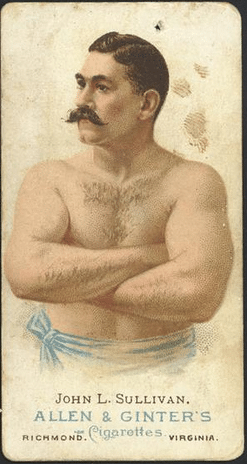
It’s been an awesomely manly year here at The Art of Manliness. When we launched the site a year ago on January 4, 2008, we didn’t think the AoM community would get this big, this fast. In just a year, AoM has grown to almost 25K subscribers. The growth of the site has been driven by our fantastic readers. Thank you for being evangelists of manliness and thanks for the tips and feedback on stories. We also want to thank those who have taken the time to send us encouraging words via email. Kate and I are truly grateful for the support. Finally, we’d like to give a big thank you to all of our guest contributors who have provided quality articles for the site.
We’re also very excited about the Art of Manliness book which will be coming in Fall 2009. Kate and I have been working hard on it for many months and the manuscript is just about done.
Because it’s pretty much impossible to avoid the “Best of…..” lists this time of year, we figured there’s no sense in resisting the urge to create one of our own. For our new readers and as a review for our old readers, we present the Best of Art of Manliness 2008. We hope you’ve enjoyed AoM during 2008, and rest assured we’ll be working to make 2009 an even better and manlier year. Cheers!
January 2008
How To Shave Like Your Grandpa
Every Man Should Do This Exercise Routine Every Day
Lessons In Manliness From the Gladiator
Increase Your Manly Confidence Overnight
Stop Hanging Out With Women and Start Dating Them
February 2008
Make Yourself Stick With These First Impression Tips
How To Ask For (And Get) A Raise Like a Man
The 10 Worst Products For Men Ever Created
Write A Love Letter Like A Soldier
We also started a series looking at applying Ben Franklin’s 13 Virtues. This was one of our most popular series. See the wrap up to read all the posts.
March 2008
14 Ways To Affair Proof Your Marriage
April 2008
How To Snag a Souvenir Baseball
9 Ways To Start a Fire Without Matches
Every Man Should Carry a Pocket Knife
How to Leave the Perfect Voicemail
May 2008
100 Must-Read Books: The Essential Man’s Library
How To Survive and Thrive In a Street Fight in 8 Simple Steps
How Do You Know When She’s the One?
Asking a Woman’s Father For Her Hand In Marriage
June 2008
The All-Time Best (And Worst) TV Dads
How To Properly Rock A Pocket Square
The 15 Greatest Man Cries (Plus 5 Dishonorable Mentions)
The Gentleman’s Guide To Tipping
July 2008
The Ultimate Man’s Guide to Fireworks
Do More Than One Stinking Pull-Up
10 Outdated Men’s Fashions That Still Have The Charm
10 Steps to the Best Best Man Speech
Shine Your Shoes Like A Soldier
August 2008
The 35 Greatest Speeches in History
The Uncle Buzz Workout: How to Get in Shape Without the Gym
52 Workout Songs To Help You Get Bigger, Stronger, and Faster
Be a Modern Knight: Protecting Your Lady in the 21st Century
September 2008
The Gentleman’s Guide to the Calling Card
Mayday! Mayday! How to Land a Plane in an Emergency
The Bushido Code: The Eight Virtues of the Samurai
October 2008
The Art of Manliness Free Man Cookbook
The Art of Thank You Note Writing
How to Pack a Bag When Traveling
November 2008
6 Lessons in Manliness from James Bond
20 Manliest Mustaches and Beards From Facial Hair History
How To Cook and Carve a Thanksgiving Turkey Like a Man
Three Steps to Building Your Individual Style
December 2008
The Art of Manliness Manly Holiday Gift Guide
How To End a Relationship Like a Man
25 of the Greatest Self-Made Men in American History
Finally, make sure to check out our archives for even more manly articles.
Fort Wayne Site-of-the-Day 1
Last year I attempted to find local blogs that were updated regularly. I struggled to find 100 before retiring the project.
This year, I'll start fresh and include blogs and websites, one each day for the entire year. I will include some from the original 100 that are still active and about 300 others that are connected to Fort Wayne, Indiana.
Connected and connecting is the key. I've been back in Fort Wayne for over 10 years now and made the decision to stay here when I proposed to my wife 8 1/2 years ago. She sold me on my home town, (which was her adopted home town), and the many attractions and benefits to living here.
So, in no particular order, let's begin:

New Year, New Focus
However, right now, let's focus on resolutions. In 2009, each of us would be better if we can identify our needs vs. our wants. This is from the DLM Blog.
How To Separate 'Real' Wants From 'Should' Wants
Posted: 22 Dec 2008 10:12 AM PST
 Many of us have taken up the habit of writing down our long-term goals, hoping we'll direct our unconscious minds to accomplish them and they'll manifest in the world. Unfortunately, as with New Year's resolutions, this technique often doesn't work as well as we'd like. Many of us are disappointed at the end of each year by the number of goals we didn't get around to checking off our list.
Many of us have taken up the habit of writing down our long-term goals, hoping we'll direct our unconscious minds to accomplish them and they'll manifest in the world. Unfortunately, as with New Year's resolutions, this technique often doesn't work as well as we'd like. Many of us are disappointed at the end of each year by the number of goals we didn't get around to checking off our list.I've come to believe one of the reasons for this is that we often base our lists of goals on what we're convinced that we "should" want, rather than what we actually want. In other words, we're setting our goals based on what our parents, culture and other influences expect us to want, as opposed to our genuine desires.
For example, although you might really want to be a sculptor, you may have been taught that you "should" want a stable, respectable career in accounting. Although you may actually prefer being single, you may have been pressured by your family, friends and others into believing you "should" get married. These "shoulds," as they're sometimes called, don't really inspire us—we're only pursuing them to get others' approval and thus we don't find ourselves strongly motivated to achieve them.
One tricky aspect of our "shoulds" is that they're often difficult to tell apart from our authentic wants. We often learn what others expect us to want very early on, and those ideas become so deeply ingrained in us that we actually convince ourselves, on a conscious level, that we want them. For instance, I worked with one woman who, as a child, aspired to be a painter, but her parents told her she lacked artistic talent. For years, she felt unsafe telling people what she really wanted, or even acknowledging it to herself.
Our unconscious minds seem to know the difference between our real wants and "should wants," and can block our efforts to reach a goal we're not actually passionate about. But how can we become aware, on a conscious level, of what we deeply, truly desire? In coaching people on finding direction in their careers, I've found three approaches helpful, and I'll share them here.
- Notice How Your Goals Make You Feel
One way to get a sense of what actually inspires us is to check in with how our bodies feel. If we're paying attention, we'll know which goals we're really interested in from the sensations that arise when we think about them. For example, when we hit upon something we genuinely desire, perhaps we'll feel a surge of strength in our arms, a spacious feeling in our heart, or something else. By contrast, if we're thinking about a goal that doesn't actually inspire us, perhaps we'll feel a numbness, a tension in our muscles somewhere, and so on.
To do this exercise, take a few moments to think about the goals you'd like to achieve in your life, and write them down. (If you read a lot of personal development literature, you've probably done this before.) Now, go back to the top of the list and slowly scan your eyes down the page, reading each goal. As you do this, take deep breaths, and hold your awareness on the sensations coming up in your body. Notice how reading each goal feels inside. Ask yourself honestly: do you really feel inspired and empowered?
Once you understand the sensations a goal brings up in you, write down what you experienced next to that goal. For instance, if you felt chills down your spine when you thought about your idea of writing a book, describe that feeling. After you've finished running down your list, create another list of the goals that actually felt exciting to contemplate. When you're working toward these goals, you're likely to be at your most passionate and productive.
It's important, as you're doing this exercise, to keep your attention solely on the physical sensations you're experiencing. You may find your mind chiming in with reasons why you should or shouldn't be interested in a goal you've written—making rational arguments like "doing this would be financially sound," "people would call you irresponsible if you did that," and so on. When this happens, thank your mind for sharing, and gently return your awareness to your body. This isn't an intellectual exercise—it's a process of connecting with your wants on a "gut level." - Observe How You Talk About Your Wants
In my experience, the true test of how strongly we believe in our goals is how we find ourselves describing them to others. The words we use, our voice tonality, how we hold our bodies, and so on are clues to how we really feel about the objectives we say we're interested in.
To do this exercise, find a person you trust to listen to what you want without judging or criticizing you—maybe a coach or therapist, a family member or a close friend. Bring your list of goals with you, and simply read the list out loud to them. Pay close attention to the words you use and how you move your body as you run down the list. If a goal you're describing is a "should want" rather than an authentic desire, you may find yourself doing one or more of the following:- Talking in a monotone. If your voice becomes emotionless or robotic as you're telling someone about your goal, it might not be genuinely inspiring to you. I have a friend, for example, who used to tell me, in a flat tone of voice, "all I want is a steady job and a girlfriend." When I finally pointed out how uninspired he sounded, he admitted that wasn't truly all he wanted.
- Justifying or rationalizing. If you find yourself defending your goal as you describe it—perhaps insisting that what you're proposing is realistic, anticipating criticisms from the other person, and so on—you may have some doubts about whether the goal actually appeals to you.
- Apologizing. If you find yourself giving disclaimers after you describe your goal, like "it's not a very big deal to me," or "for what it's worth," the goal might not be as interesting to you as it may have looked on paper.
- Making yourself small. Perhaps you find yourself hunching or slouching as you talk about what you want, or having a strong desire to bolt out of the room. The anxiety you're feeling may stem from an awareness that you aren't expressing a deep-seated desire.
- Speaking very quickly. If you describe your goal really quickly, to get the discomfort of talking about it over with as soon as possible, the goal might not be in keeping with your authentic wants.
To be sure, there may be other reasons why you tend to do these behaviors. Your reluctance to talk about your goals might simply stem from shame about asking for what you want, a feeling that you're bragging by reciting your goals, or something else. But if you find yourself doing these things, at least take an honest look at whether the goal you're talking about genuinely inspires you. - Notice How Others React To Your Goals
Just as checking in with your body when you consider your goals is a useful indicator of how appealing those goals are to you, noticing how others feel and respond when you say what you want is also an effective way of measuring your passion. To do this exercise, read your list of goals to someone you feel safe with, but this time ask them what sensations came up in their bodies as you said what you wanted.
When you have this conversation, make sure you ask the other person to simply and honestly describe the feelings they're noticing in the moment. For example, they might say "I noticed my jaw tensing as you told me you want to start a consulting firm," "my attention drifted off when you described the island paradise you want," and so on. Ask that they refrain, for the moment, from giving you a rational analysis of your goals—for instance, talking about the possible cost of what you're proposing, whether you have the skills to achieve your objective, and so forth.
Human beings are empathic creatures—much more so than we usually give each other credit for. If we pay close attention, when another person expresses a heartfelt desire, we can feel the strength of their desire in our own bodies. When they say something that isn't true for them, by contrast, our bodies tighten up, instinctively rejecting their words. If you have trouble determining which of your goals truly express your desires, another person's reactions may be a helpful guide.
 | Written on 12/22/2008 by Chris Edgar. Chris is an author and success coach who helps people transition to careers aligned with their true callings, and find more fulfillment and productivity in their work. You can read more from Chris at Purpose Power Coaching. |
Wednesday, December 31, 2008
Tonights Video: The Next Tonight Show
Conquering Fears
How to Become a Great Public Speaker (with No Stress)
Posted: 22 Dec 2008 05:34 AM PST
 We have all heard that famous statistic, the one that claims the number one fear people have is public speaking, number two is death. Seinfeld had a joke about this stat, he said apparently if people are at a funeral they would rather be in the coffin than be giving the eulogy. If that statistic is accepted as fact, Seinfeld’s joke, while ridiculous sounding, would be technically correct. What is wrong with this scenario?
We have all heard that famous statistic, the one that claims the number one fear people have is public speaking, number two is death. Seinfeld had a joke about this stat, he said apparently if people are at a funeral they would rather be in the coffin than be giving the eulogy. If that statistic is accepted as fact, Seinfeld’s joke, while ridiculous sounding, would be technically correct. What is wrong with this scenario?Would people really rather be dead than speak in public? Why? Well I am here to tell you that speaking in public is nothing to be afraid of; I do it all the time. Like most things in life, the more you speak in public, the less nervous you become when you do it. Unfortunately, most people choose to avoid giving speeches so vehemently that they will never do it enough to become comfortable with it.
So for all of those people out there who avoid speaking in public like, well, death, I am here to tell you how to breeze through any public speaking engagement and come out the other end as a hit public speaker, with as little stress as possible.
- Admit You are Nervous
This is part of connecting with the audience. When you admit to your nervousness you expose your humanity on a personal level to the audience and they will empathize. They are just as afraid of public speaking as you are. When you admit to your nervousness, the elephant in the room has been directly addressed and neutralized.
Admitting that you are nervous also relieves tension within yourself. It allows you to get that obvious impediment out of the way from the start. You could also segue into our next point from admitting you are nervous, which is... - Tell a Joke
This seems to be one of the oldest cliches out there, but in my experience it works. I absolutely advocate telling a self-deprecating joke. If you are giving a work presentation, admit how nervous you are as outlined above, then make sure to thank the makers of pepto bismal for helping you settle your stomach before your presentation. “You may be able to see the pink film on my teeth” you could say. That is sure to get a laugh.
Once the joke is told and a laugh is shared between you and the audience, even more tension is released and your confidence will begin to build. You've already scored with your joke, so they are likely to enjoy the rest of your public talk. - Tell A Personal Story
This is another key way to connect with the audience. If you are giving a eulogy, tell a story about yourself and the deceased. If you are giving a work presentation, tell a story about when you first started with the company. Personal connection with the audience is essential to maintaining their attention and impacting them with your public speaking engagement. - Talk to One Person At a Time
It is much easier to speak to one person than it is to speak to a whole group of people. If that were not true, no one would be afraid of public speaking. You will calm your nerves and be a much more effective speaker if you speak to one person at a time, for a few second each. When you have spoken to a person, making eye contact, you then move to another person, and so on and so on.
By speaking to one person at a time you have neutralized the overwhelming fear of looking out at a see of faces that are trained on you and every word you say. When you narrow that crowd down to one person at a time, all of a sudden your public speaking becomes much more manageable.
Another reason to speak to one person at a time is to connect with the audience and knock your public speaking engagement out of the park. One of the keys to successful public speaking is connecting with the audience. When you make eye contact with individual audience members, you connect with them and make them feel like you are speaking directly to them. For that time period when you are speaking and making eye contact with that person, that is exactly what you are doing, talking to that one person individually. - Be Honest
When you are sincere and honest, people can tell. It creates a bond between you and the audience that makes your presentation much more authentic and impactful. If you are doing a presentation for work and open it up for questions and answers afterward, you may get a question you do not know the answer to. Don’t hem and haw and make up an answer; admit you don’t know the answer and open the floor to someone else that may. If no one can help, assure the questioner you will research it and get back to them with an answer as soon as possible.
Being honest is a method which allows your to be a more effective presenter. It also alleviates a lot of nerves that people artificially impose on themselves. If you are set to give a talk for work and think you need to know the answers to every single question each person asks in relation to your presentation, you are going to be much more stressed than if you just go into the situation knowing that you cannot possibly know every conceivable answer, and that is okay.
People understand that you are a human being, not a walking database for every possible scenario related to your topic. When you lift the burden of knowing everything off of yourself, you alleviate a huge stress burden from your public speaking baggage.
 | Written on 12/22/2008 by Mike S. Mike writes about personal development for intellectual thinkers at his website mikesalara.com. | Photo Credit: sheilaellen |
Tuesday, December 30, 2008
The Problem with Karaoke

Cyanide & Happiness @ Explosm.net
Don't Buy A New Computer
Last year on this day, I was going from one store to another comparing my options for a new laptop. I also bought a three year warranty and avoided nine out of the ten tips listed below by Bob Rankin:
Ten Stupid Things You Can Do To Mess Up Your Computer
Okay, I'm using a little reverse psychology on you... If want to keep your computer running smoothly and avoid becoming a target for cyber criminals, here are ten things you should NOT do.
- Failing to Apply Security Patches - New computer security threats crop up almost daily, as hackers, crackers and other cyber villians attempt to find and exploit holes in the operating system and application software we use every day. Unpatched vulnerabilities can lead to virus infestations, enslavement in a botnet, or even identity theft. And no software is immune, whether you run Windows, Mac or Linux. You need to configure your system to automatically download and install security patches for your operating system, office software, web browser, Java, email program, PDF reader, media player and other software you use. How do you do that?
 Take advantage of the tools built into your operating system -- Windows Update, Mac OS X Software Update, or Ubuntu Update Manager -- and make sure they're set to run on auto-pilot every day. Other software that you've installed may offer the same type of automatic updating capability. Don't ignore the warning messages from the updaters, and apply fixes as soon as they are available.
Take advantage of the tools built into your operating system -- Windows Update, Mac OS X Software Update, or Ubuntu Update Manager -- and make sure they're set to run on auto-pilot every day. Other software that you've installed may offer the same type of automatic updating capability. Don't ignore the warning messages from the updaters, and apply fixes as soon as they are available. - Not Using Anti-Virus/Anti-Spyware Protection - This is perhaps the most common way to make a system inoperable, and the easiest problem to avoid. Not using anti-malware program is akin to leaving the front door of your house wide open with all of your valuables on prominent display. Having an unprotected system is an invitation to allow all kinds of nasty things like spyware, trojan horses, viruses and root kits to access your system. Virus and spyware creators do this in the hope of gaining control of computers for nefarious purposes, or getting access to sensitive information that may be stored on a hard drive. And of course, viruses and spyware can significantly slow down a machine. Be safe, use a good anti-virus, and anti-spyware program to keep out the bad stuff. See my recommendations for Malware Scanners and Free Anti-Virus Software.
- Not Using a Firewall - Yes, your computer needs a firewall. But probably not the kind everyone is telling you to install. Chances are, you already have an excellent firewall built in to your high-speed modem/router. Find out more about the two kinds of firewalls, and which one you need in my Do I Need a Firewall? article.
 Clicking on Bogus Popups - Popup ads are intrusive, annoying and seemingly everywhere on the Web. Yet, it is amazing how often some computer users will mindlessly click on them. Popups will promise you anything from a free dinner for two to ridding your machine of viruses with one click. These ads can mask spyware and malware that gets loaded onto your machine behind-the-scenes. Also, a lot of them are just annoying links to endlessly long surveys that offer a free laptop or iPod, with the catch being that you have to sign up for a lot of paid services that you probably really don't need. One telecom provider recently got a flood of angry calls from users who unwittingly clicked a popup that subtly had them signing up for a web hosting service without the users even realizing it! The use of a good anti-malware program plus using the popup blocker that comes with a lot of browsers, can help keep the popup ads at bay. If you see a popup ad in a browser window, close the window by clicking the red button at the top. Don't click inside the popup window, or you could unwittingly download harmful software.
Clicking on Bogus Popups - Popup ads are intrusive, annoying and seemingly everywhere on the Web. Yet, it is amazing how often some computer users will mindlessly click on them. Popups will promise you anything from a free dinner for two to ridding your machine of viruses with one click. These ads can mask spyware and malware that gets loaded onto your machine behind-the-scenes. Also, a lot of them are just annoying links to endlessly long surveys that offer a free laptop or iPod, with the catch being that you have to sign up for a lot of paid services that you probably really don't need. One telecom provider recently got a flood of angry calls from users who unwittingly clicked a popup that subtly had them signing up for a web hosting service without the users even realizing it! The use of a good anti-malware program plus using the popup blocker that comes with a lot of browsers, can help keep the popup ads at bay. If you see a popup ad in a browser window, close the window by clicking the red button at the top. Don't click inside the popup window, or you could unwittingly download harmful software. Unsafe Downloading - It can be tempting to download pirated versions of games, movies or popular software packages. But beware the warez... tools like Limewire, Bittorrent, and rogue download sites are chock full of nasty surprises. Some downloads have been modified to contain embedded viruses or trojan horses that can compromise your system. Stick with safe download sites such as Download.com and Tucows, where you can find tons free software and shareware that's certified malware-free.
Unsafe Downloading - It can be tempting to download pirated versions of games, movies or popular software packages. But beware the warez... tools like Limewire, Bittorrent, and rogue download sites are chock full of nasty surprises. Some downloads have been modified to contain embedded viruses or trojan horses that can compromise your system. Stick with safe download sites such as Download.com and Tucows, where you can find tons free software and shareware that's certified malware-free.- Falling for Phishing Scams - The Nigerian email scam has become as well-known a confidence game as the old shell-game. But it still is astonishing how many will fall for it. The news reported recently about a woman who lost almost half a million dollars to email scammers. Also, be on the lookout for those very official looking phishing attempts. An email may come to your inbox that looks like it's from your bank, Ebay or Paypal. You open it up and it is asking you to verify your information by entering your password, social security or account number. And it's scary how precisely the emails (and the sites they link to) match the real ones. Bottom line: no one has any business asking for your private information via email. If you have any questions about a suspicious email that looks like it came from a place you do business with, call that company to verify, and always use a bookmark or manually key the address of sites that require a login. Read more about phishing scams to protect yourself from these online scams.
 Not Securing Your WiFi - Ever notice your Internet connection slowing down? This could be the result of strangers mooching off your wifi bandwidth. If you leave your wireless router wide open and unsecured, it's an open invitation for neighbors and passers-by to connect. But in addition to sharing your internet connection, you're also exposing yourself to hackers and possibly even legal liability. Best practice is to enable WEP or WPA encryption on your router and to set a strong password as the key. Many users neglect to change the default username and password of their home routers, information which can easily be found online. Why take a chance? Read my article Wireless Security for help getting your router secured.
Not Securing Your WiFi - Ever notice your Internet connection slowing down? This could be the result of strangers mooching off your wifi bandwidth. If you leave your wireless router wide open and unsecured, it's an open invitation for neighbors and passers-by to connect. But in addition to sharing your internet connection, you're also exposing yourself to hackers and possibly even legal liability. Best practice is to enable WEP or WPA encryption on your router and to set a strong password as the key. Many users neglect to change the default username and password of their home routers, information which can easily be found online. Why take a chance? Read my article Wireless Security for help getting your router secured.- Haphazard Deleting - It's not so hard to fill up a hard drive these days, even with the large storage capacity that comes with machines. But when you feel like doing some housekeeping on your system, make sure you know what you are deleting. The deletion of DLL files and other files residing in system folders or program folders can cause your operating system or applications to crash. Usually, Windows will not let you delete critical system files, but play it safe: if you are not sure what you are deleting, leave it alone and do some research on it first. When it come to housekeeping, better options for freeing up drive space are removing unneccesary software with Add/Remove Programs, or running the Disk Cleanup utility. For heavy duty disk scrubbing, read my tips for a Clean Hard Drive.
 Forgetting to Back Up - This is a heart-breaker because it so easy to avoid. Sooner or later, you WILL accidentally delete an important file, or experience a hard drive failure. Always make sure that you back up any critical files, and on a regular basis. Backing up is so easy now with external drives and online backup services. No messy tapes or piles or floppy disks... Shame on you once if you lose a file, shame on you twice if you didn't remember to back it up. See my related piece on Automatic Backups and Online Backup Services.
Forgetting to Back Up - This is a heart-breaker because it so easy to avoid. Sooner or later, you WILL accidentally delete an important file, or experience a hard drive failure. Always make sure that you back up any critical files, and on a regular basis. Backing up is so easy now with external drives and online backup services. No messy tapes or piles or floppy disks... Shame on you once if you lose a file, shame on you twice if you didn't remember to back it up. See my related piece on Automatic Backups and Online Backup Services.- Setting up a BIOS password - This idea is well intentioned yet can cause you trouble. You want to be as safe as can be, so you lock your computer with a BIOS password. It cannot even go through boot up without input of that password. If you set a BIOS password, make sure you never ever forget. Some motherboards will allow you to reset the BIOS, but others cannot be done without the assistance of potentially costly expert help. If you want to be secure, a better option is a fingerprint reader. Plus, there's no password to remember.
Monday, December 29, 2008
Manly Examples
25 of the Greatest Self-Made Men in American History
Posted: 28 Dec 2008 09:18 PM CST
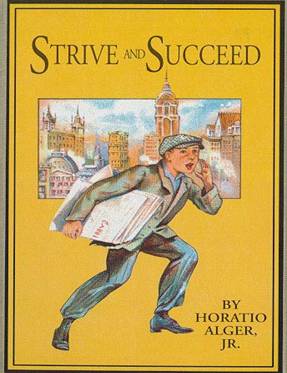
The idea of the self-made man is inextricably tied up with that of the American dream. It is his image that has lured thousands of immigrants to our shores, all hoping for the chance to turn a handful of beans into a vast fortune. The self-made man is he who comes from unpromising circumstances, who is not born into privilege and wealth, and yet by his own efforts, by pulling himself up by the bootstraps, manages to become a great success in life. Frederick Douglass, a self-made man himself, said the discussion of self-made men was the discussion of “manhood itself, and this in its broadest and most comprehensive sense.” Douglass sensed that the story of the self-made man is the story of manliness personified. The self-made man harnesses and utilizes the most important masculine qualities: hard work, perseverance, and most of all, personal responsibility. The story of the self-made man embodies the goal of every man: to become the captain of his own destiny.
What is a self-made man?
Although typically associated with the rags to riches story, a self-made man is anyone who attains far greater success than his original circumstances would have indicated was possible. The self-made man often has to overcome great obstacles to achieve his goals. Self-made men attain their success through education, hard work, and sheer willpower. While no man is an island, it’s not external help or special relationships that make the crucial difference in the self-made man’s rise.
Nor is luck the deciding factor. Society loves the story of a man whose success came to him largely by chance, from an opportunity dropped from the sky. Such stories allow unsuccessful men to excuse their failure as due to unavoidable bad luck and demerit the success of others by chalking their achievements up to chance. Sadly, too many men today believe that lounging on the shore, waiting for their ship to come in, constitutes the best pathway to reaching their goals. Instead, self-made men throughout history have made their own way in life by reaching deep inside themselves and through willpower and elbow grease, creating their own destiny. While there are always many factors to success, all are subordinate to work, which is the great key to success.
The History of the Self-Made Man
In his rise from being the son of a candle maker to a legend among men, Benjamin Franklin became America’s original self-made man. Abraham Lincoln likewise captured the public imagination when he made the improbable leap from lowly log-cabin to the White House. Yet the concept really took hold in American culture during the post Civil-War period. The so-called Second Industrial Revolution was in full swing, new inventions quickly made men rich and famous, and factories sprung from the ground, seemingly overnight. While a young man’s destiny had formerly been laid out for him practically at birth (he would follow his father into the family business) the possibility now existed to leave hearth and home and strike out for one’s individual success. For the young man who was willing to work hard and get ahead, the nation seemed to offer innumerable opportunities to strike it rich. Inspired by real examples like Andrew Carnegie and the fictional heroes of Horatio Alger’s novels, a man’s success seemed limited only by his drive and ambition.
After the heyday of the self-made man, the concept took several hits. During the 1920’s, America experienced a (thankfully) brief infatuation with eugenics and the idea that a man’s destiny and character were almost entirely determined by his DNA. The idea of the self-made man was further weakened during the Great Depression, when men who had seemingly done all the right things-worked hard, scrimped, saved, and invested- saw their fortunes wiped out and all they had worked for washed away. Buffeted by grave external forces, it was hard to retain faith in the idea that one’s life remained in one’s control.
The modern age continued to assault our culture’s belief in the self-made man. Sociologists and public policy experts stressed the effect of poverty and culture in determining an individual’s success, arguing that these factors greatly inhibited the rise of those beset by them. My American history textbook in college twice called the idea of the self-made man “a myth.” Most recently, Malcolm Gladwell’s new book, Outliers, posits that great achievement is largely the result of cultural background and good luck.
Why this list of self-made men?
While the popularity of the self-made man may have faded in recent times, it is worthy of being revived. The concept of manly personal responsibility has greatly eroded, and too many young men today believe they are the helpless victims of their circumstances. The following list provides a strong remedy against such thinking. It is full of stories of men who refused to be satisfied with their lot in life and instead chose a different, more extraordinary path for themselves. They set a course for greatness and proceeded to work without rest until their goals became a reality.
These stories prove that it doesn’t matter who your parents are, where you’re born, or how much education you acquire; the difference is in your character and willingness to do whatever it takes to be the best and achieve your dreams. As we honor these self-made men, we hope to inspire you to join their ranks. As Frederick Douglass said:
Though a man of this class need not claim to be a hero or to be worshipped as such, there is a genuine heroism in his struggle and something of sublimity and glory in his triumph. Every instance of such success is an example and help to humanity. It, better than any mere assertion, gives us assurance of the latent powers of simple and unaided manhood. It dignifies labor, honors, application, lessens pain and depression, dispels gloom from the brow of the destitute and weariness from the heart of him about to faint, and enables man to take hold of the roughest and flintiest hardships incident to he battles of life, with a lighter heart, with higher hopes and a larger courage.
This list of great self-made men is not all-inclusive; both the past and the present are studded with far too many remarkable strivers to possibly cover them all. But here we highlight some of the most extraordinary of these stories. While some of these varied men were far more virtuous than others, none were saints. All had flaws and made mistakes. Some were ruthless in their pursuit of success. Any time a man’s life is held up for an example, it is incumbent upon the reader to glean the valuable lessons to be learned from that life, while discarding those things which he finds distasteful.
And now the list:
Benjamin Franklin, 1706-1790
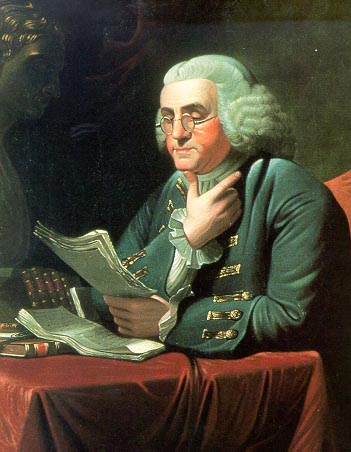
Does thou love life? Then do not squander time; for that’s the stuff life is made of.
Franklin’s life is the pattern from which all other self-made men have been cut. His rhetoric of hard work, ambition, and thrift was not merely a philosophy he preached; it was he code by which he lived his life. None of his successes came by chance; they were created by the ceaseless way in which he organized his life to maximize productivity. Such discipline was necessary if he ever hoped to rise from his humble beginnings. Franklin was the 15th of 17 children born to father Josiah Franklin, a candlemaker. Granted only two years of formal schooling, Franklin supplemented his knowledge by constantly having his nose stuck in a book.
When he was 17, young Ben struck out on his own and traveled to Philadelphia. Unlike other aristocrats of the period, who used slave labor to free up time for their other pursuits, Franklin created an enormously successful printing business which allowed him to retire and became a veritable Renaissance man. His accomplishments are too numerous to list. As an author he penned the Poor Richard’s Almanack, his famous autobiography, and numerous classic essays. As an inventor, he created the lightning rod, the glass harmonica, the Franklin stove, bifocal glasses, and the flexible urinary catheter. As a thinker he established the Junto discussion group, the first subscription library, and the American Philosophical Society. As a scientist he made important investigations into the nature of electricity. He served his country, state, and city as a councilman, postmaster, recruiter of the Pennsylvania militia, Speaker of the Pennsylvania State House, delegate to the Second Continental Congress, ambassador to France, President of Pennsylvania, and Founding Father. Not bad for the son of a candlemaker, eh?
Ross Perot, 1930-
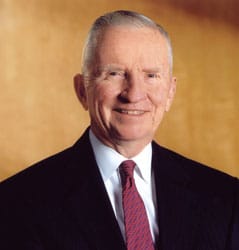
Most people give up just when they’re about to achieve success. They quit on the one yard line. They give up at the last minute of the game one foot from a winning touchdown.
Born in Texarkana, Texas to a father who picked cotton for a living, Ross Perot could have lived and died in obscurity like thousands before him. But from a young age, Perot’s ambition set him apart. He became an Eagle Scout in high school and then attended the Naval Academy where he helped establish the school’s honor code and became class president and battalion commander.
After leaving the Navy, Perot became a salesman for IBM. Perot quickly distinguished himself from the pack, filling the year’s sales quota in two weeks. Full of entrepreneurial ideas, but ignored by the higher ups, Perot left IBM in 1962 to found his own company, Electronic Data Systems. Things started off rocky; Perot’s initial attempts to sell their data processing services to corporations resulted in 77 rejections. Yet Perot persisted, won EDS government contracts, and turned the company into a technology powerhouse. EDS was eventually bought by GM for a cool 700 million. Not content to rest on his business laurels, Perot began to involve himself in political policy issues, an interest that culminated in his famous run for the presidency in 1992. Garnering the largest percentage of the popular vote as a third party candidate since TR’s run in 1912, Perot’s success surprised the pundits and assuredly a lot of folks back in Texarkana.
John D. Rockefeller, 1839-1937
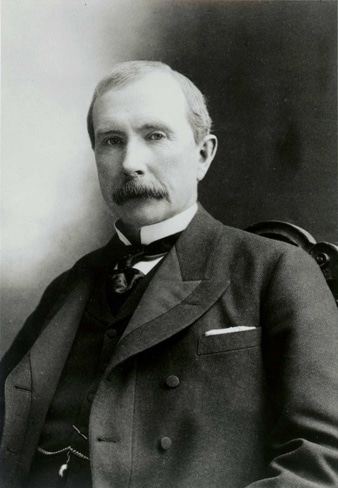
I do not think that there is any other quality so essential to success of any kind as the quality of perseverance. It overcomes almost everything, even nature.
John D. Rockefeller needed neither a trust fund nor the example of a successful father to become the richest man in American history. His dad was a salesman who was rarely at home as young John grew up. Rockefeller was left to forge his own path. As a young man, he took a job as an assistant bookkeeper, saved his dough, and then partnered with others in buying a couple of oil refineries in Cleveland. In 1870, Rockefeller incorporated his holdings into Standard Oil.
Rockefeller’s business plan was simple; by obsessively increasing the efficiency of his refineries and pressuring railroad companies for discounted shipping, he successfully undercut and then bought out the competition. It was said he had the “soul of a bookkeeper,” and he loved to pour over his figures and see where waste could be eliminated. Utilizing both vertical and horizontal integration, Rockefeller soon owned nearly every aspect of the oil business and controlled 90% of the kerosene market. Such success netted Rockefeller great wealth; when he retired he was estimated to have accumulated a $1,500,000,000 fortune. Having won this wealth through his own toil, he didn’t just sit on this money. He donated much of it in hopes of providing others with similar opportunities for success.
Ralph Lauren, 1939-
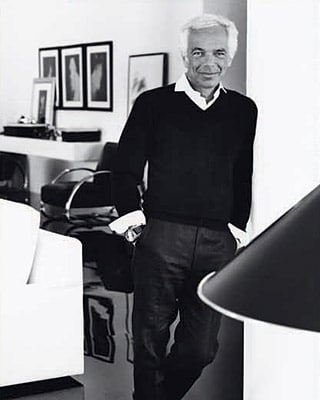
Knowledge is not a passion from without the mind, but an active exertion of the inward strength, vigor and power of the mind, displaying itself from within.
Growing up as a Jewish kid in the Bronx, Ralph Lauren never hung out at the country club, played polo, or went sailing on a yacht. Although his brand is now a famous symbol of gentility and affluence, Ralph Lauren’s own beginnings were far more humble. Born as Ralph Rueben Lifshitz, his parents were Ashkenazi Jews who had immigrated from Belarus, and his father was a house painter. The family lived in a small apartment, with Ralph sharing a room with his two brothers. Ralph’s mother hoped he would become a rabbi, but from a early age, Lauren was drawn to fashion and entrepreneurship. He worked after school as a stock boy and sold handmade ties to his classmates in order to purchase stylish suits.
Lauren attended Baruch College for two years, but then dropped out. He never went to fashion school. After a stint in the army, he became a salesman for Brooks Brothers. They weren’t interested in helping Lauren develop his own line of ties, so he then went to work for Beau Brumwell Neckwear which allowed him to design and sell his own “Polo” brand ties in their showroom. The ties became popular and other stores started carrying them. Lauren started designing women’s and men’s wear, and of course, introduced his now famous Polo shirt. He soon had enough money to open his own store and develop his brand into an empire. Today, Lauren has 35 boutiques across the country, has expanded his brand to include home furnishings and cologne, and currently ranks as the 76th richest man in America.
Frederick Douglass, 1818-1895
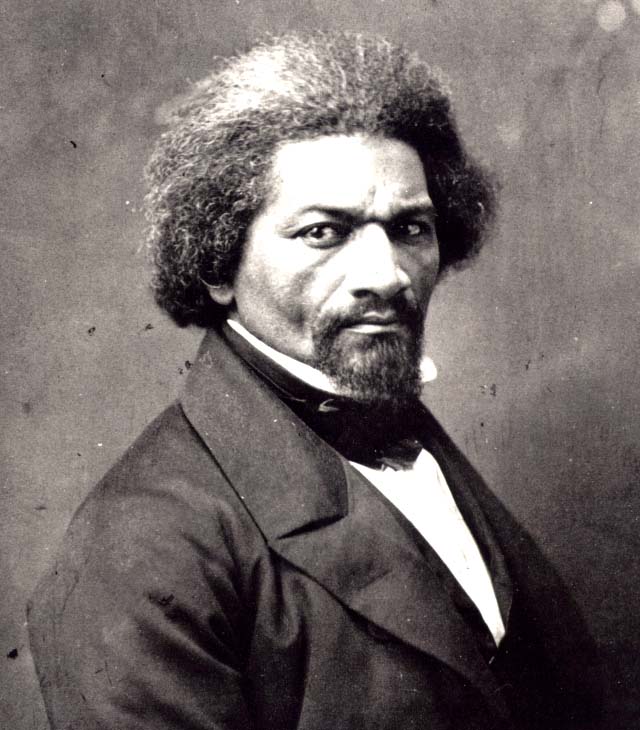
Allowing only ordinary ability and opportunity, we may explain success mainly by one word and that word is WORK! WORK!! WORK!!! WORK!!!!
When it comes to rags to riches stories, there are no rags lowlier than those worn by American slaves. Rising from the shackles of slavery to extraordinary success required monumental amounts of hard work, tenacity, and passion, and Frederick Douglass had these qualities in spades. Douglass understood that nothing in life would ever be handed to him. When his master’s wife, who had been teaching him the alphabet, was reprimanded for doing so by her husband, Douglass continued to learn to read by interacting with white children and working through any written materials he could find. When he was traded to the cruel mastery of Edward Covey, who regularly whipped Douglass, Douglass confronted his master, getting him to back down and never raise his hand to him again.
In 1838, Douglass took his greatest risk yet and escaped from slavery to Massachusetts. Douglass soon rose to prominence, becoming an outspoken abolitionist, a spectacular orator, a bestselling author, and a newspaper publisher. After the Civil War, Douglass served as President of the Freedman’s Savings Bank; marshal of the District of Columbia, minister-resident and consul-general to the Republic of Haiti, and chargé d’affaires for the Dominican Republic. During the 1888 Republican Convention, he became the first African-American to receive a vote to be nominated for the Presidency. Dying in 1895, Douglass had risen from slavery to become one of the most prominent and well-respected black men in the United States.
Ray Kroc, 1902-1984
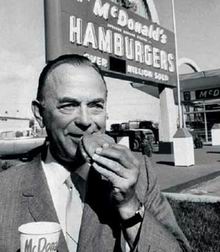
Luck is a dividend of sweat. The more you sweat, the luckier you get.
Ray Kroc, a high school drop out, attained his first job by employing a bit of dishonesty; the 15 year old young man lied to the military to become an ambulance driver during WWI. The war ended before young Ray could see action, and so Kroc took a job playing piano for a radio station at night and selling paper cups by day. He next became fascinated with a multi-mixer milkshake machine and purchased the marketing rights to it. For the next 17 years, Kroc traveled the country selling his milkshake making miracle to whoever would listen. As he made the rounds to customers, he became intrigued by a hamburger restaurant in San Bernardino, California owned by the McDonald brothers. While the McDonald brothers were satisfied with their small franchise, Kroc believed the burger business had far greater potential. Although Kroc was by then a 53 year old man suffering from diabetes and arthritis and missing both his thyroid and gall bladder, he had a vision of turning the restaurant into a global fast food empire. In 1961, he purchased the McDonalds’s franchise. In only a few years years, Kroc had sold a billion hamburgers and opened the franchise’s 500th store. McDonald’s had begun its campaign to take over the world. The Hamburglar would be proud.
Harry Reid, 1939-
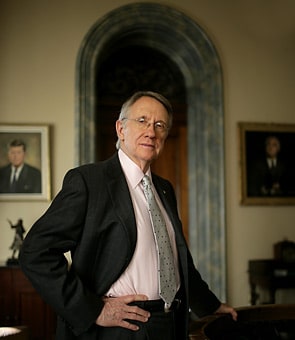
Reid was born in the tiny, abandoned mining town of Searchlight, Nevada: population 200. His father was a miner and alcoholic who possessed only an elementary school education. His mother took in laundry from local brothels to help the family make ends meet. The family lived in a house with two rooms and an outhouse. As a youth, Reid was rough around the edges and loved to use his fists, whether competing as an amateur boxer or taking part in an impromptu rumble in the streets.
Yet he overcame this auspicious start, graduating from Utah State University and attending law school at George Washington University. In order to support his family during law school, Reid would go to class during the day and work as a security guard at night. Reid practiced law before being elected to the Nevada State Assembly in 1967. He then served as Lt. Governor. Losing the senatorial election in 1974, Reid instead took a position as chairman of the Nevada Gaming Commission. In 1982, Reid ran for Congress again, and this time won a seat in the House of Representatives. He then became a US Senator, and steadily moved up the leadership ranks from Democratic Whip, to minority leader, and finally to majority leader, the position in which he currently serves.
Thomas Edison, 1847-1931
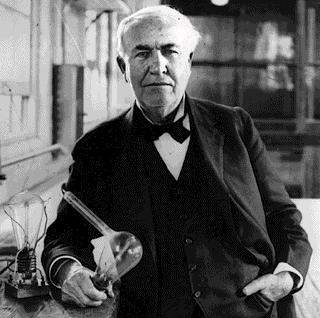
It is astonishing what an effort it seems to be for many people to put their brains definitely and systematically to work.
Kicked out of school for being easily distracted, Thomas Edison received only 3 months of formal schooling. The rest of Edison’s education came from his mother’s homeschooling and his reading of classic books. Though he lost nearly all of his hearing at a young age, Edison did not let this disability hinder him. He early on showed a tenacious entrepreneurial streak; he sold candy and newspapers aboard trains as a youth and then won a position as telegraph operator when he saved a station agent’s son from being run over by a train. As a telegrapher, he worked 12 hours a day, 6 days a week. Edison requested the night shift so that he could read and do his experiments during the slow evening hours. His constant tinkering paid off; Edison (often with help from his partners) came up with a myriad of inventions, including the phonograph, stock ticker, fluoroscope, kinetoscope, and most famously, the first commercially viable incandescent lamp. “The Wizard of Menlo Park” was both a genius inventor and a savvy business man; he filed more than 1500 patents during his lifetime and founded 14 companies including General Electric.
Larry Ellison, 1944-
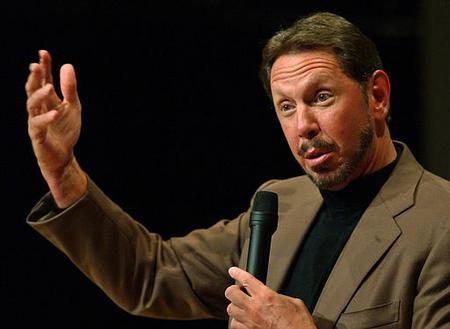
The most important aspect of my personality, as far as determining my success goes, has been my questioning conventional wisdom, doubting the experts and questioning authority. While that can be very painful in relationships with your parents and teachers, it’s enormously useful in life.
Larry Ellison was born in the Bronx to an unwed mother; he never knew his father. While still an infant, Ellison was shipped off to Chicago to be taken care of and eventually adopted by, his mother’s aunt and uncle. Ellison grew up in a two bedroom apartment and attended two years of college before dropping out when his adoptive mother died. Interested in computer and software design, Ellison went to work for Ampex Corporation before founding what would become the database company Oracle in 1977 with $2000 of his own money. Greatly successfull, the company made Ellison a billionaire many times over and continues to secure his place as the 9th richest man in the world.
Abraham Lincoln, 1809-1865

Things may come to those who wait, but only the things left by those who hustle.
Lincoln lacked connections, charisma, good looks, and formal education, and yet became one of the greatest presidents in United States history. Famously born in a one-room cabin to uneducated farmer parents, Abraham Lincoln’s rise to the Presidency has long been the stuff of legend. Lincoln was almost entirely self-educated; he received only 18 months of formal schooling. He offset this disadvantage by voraciously consuming any book he could get his hands on. At age 22, Lincoln packed his meager belongings in a canoe and paddled out on his own. He taught himself the law and became a successful attorney and state legislator in Illinois. Losing his senatorial campaign in 1858 to Stephen Douglas did not deter him from his goals; he persevered against this very same opponent to win the presidency. The rest, of course, is history. Lincoln went on to guide America through her darkest and stormiest hour.
Clarence Thomas, 1948-
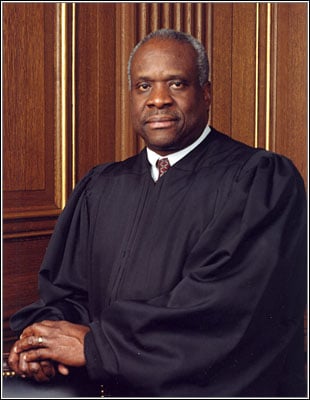
Clarence Thomas was born in the poor community of Pin Point, Georgia. Abandoned by their father and left homeless after a fire, Clarence and his brother moved to Savannah. They moved in with Clarence’s grandfather, who would have a profound effect on the boy. He taught Thomas the value of hard work by taking Clarence on deliveries for his ice business and having him regularly work on a farm from sunrise to sunset. Thomas became the first person in his family to attend college when he headed off to the College of the Holy Cross. He then received his JD from Yale Law School. After law school, Thomas steadily attained more and more prestigious positions, starting as an assistant to the Attorney General of Missouri and becoming Reagan’s Assistant Secretary of Education for the Office of Civil Rights. GHW Bush appointed Thomas to the Court of Appeals for the District of Columbia Circuit. He finally grasped the legal world’s brass ring when he was confirmed as a Supreme Court Justice in 1991.
Sam Walton, 1918-1992
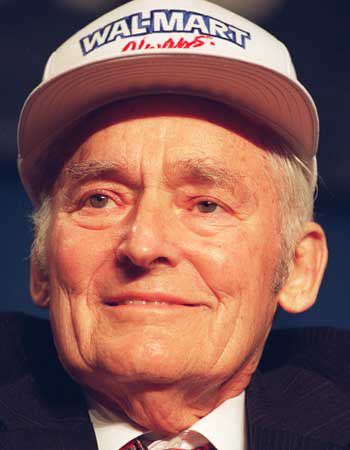
I think I overcame every single one of my personal shortcomings by the sheer passion I brought to my work. I don’t know if you’re born with this kind of passion, or if you can learn it. But I do know you need it.
Now a big-box retailing behemoth, the idea for Wal-Mart came from the mind of an unassuming farm boy from Oklahoma. Walton spent his early years living on his family’s farm, and then moved to Missouri when his father decided to become a farm loan appraiser. Sam showed great ambition from an early age; he became Missouri’s youngest ever Eagle Scout when he received that award in 8th grade, and he was elected class president his senior year in high school. Despite growing up during the Great Depression and working odd jobs like delivering newspapers to help support his family, he excelled academically throughout his school years. He paid his way through the University of Missouri by working as a lifeguard, newspaper delivery boy, and waiter. When he graduated, he took jobs at JC Penney’s and at a DuPont’s munitions plant before serving in the army during WWII.
After the war, Walton was determined to open his own variety store. He pooled the substantial amount of money he saved while in the military and with a loan from his father-in-law, bought a Ben Franklin store in Newport, Arkansas. Walton supplied customers with a wide variety of goods at low prices and kept those prices low by buying in high volume directly from wholesalers. The store was highly successful, and Walton then opened his own store, “Walton’s Five & Dime” in Bentonville. In 1962, Walton introduced the first true Wal-Mart to Rogers, AR. That store, like all his others, turned a nice profit, and Walton began to expand the franchise across the country, making it the world’s largest retailer by 1991. He reigned as America’s richest man from 1985-1988, and were he alive today, he would be the world’s richest man, with wealth double that of Bill Gates.
Harry S. Truman, 1884-1972

In reading the lives of great men, I found that the first victory they won was over themselves… self-discipline with all of them came first.
Harry S. Truman lived by the motto, “The buck stops here,” long before it officially adorned his Oval Office desk. Such decisiveness was a necessary trait for a man who had to routinely overcome low expectations to win respect. Truman was born into a farming family in Missouri. After high school, Truman was employed in a few odd jobs before returning to labor on the family farm. College was not in the cards for Harry; he couldn’t afford to attend any school except West Point, and they turned him down because of his poor eyesight. Truman would thus become the only president to serve after 1897 who did not hold a college degree.
Yet, Harry was determined to make the best of his circumstances.
He joined the National Guard and served in WWI. His eyesight should have prevented him from joining up, but Truman memorized the chart in order to pass. Truman served heroically, and became a Colonel in the Guard. After the war, Truman opened a haberdashery in Kansas City that went bankrupt during a recession in 1921. He then was elected as a county judge. In 1934, he became a US Senator. Ten years later, he was chosen to be FDR’s VP. When FDR died, Truman had finally ascended to the highest office in the land.
When he ran for reelection in 1948, Truman was, as he had been in his senatorial campaigns, the true underdog. He had to fight fiercely just to secure the nomination, and during the general election, determined to get his message out to the people, he crisscrossed the nation in an energetic whistle-stop tour. While the Democrat’s prospects looked bleak, Truman vigorously came from behind and pulled off an upset win. He had spent his whole life giving his naysayers hell, and he had done it once again.
Sean Combs, 1969-
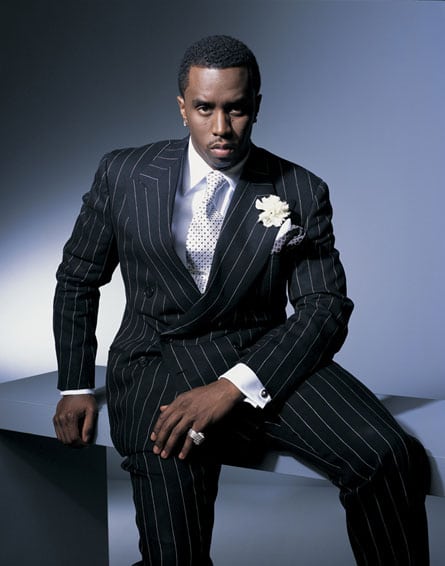
I’ve never been surprised about what happened to me. I’ve put in hard work to get to this point. It’s like when you become a lawyer - if you’re bustin’ your ass, you’re not surprised when you get your degree. I came in to win, you know. This is why I stay up late while other people are sleeping; this is why I don’t go out to the Hamptons.
Puff, Puff Daddy, P. Diddy-whatever you want to call him, the name Sean Combs most deserves is that of self-made man. Mr. Combs claims to work harder than anyone else in the entertainment business, and he has the success to show for it. Born in public housing projects in Harlem, Sean’s father was shot to death when Sean was only 2. At age 12, Combs, who was too young to officially have his own paper route, found a way around the rule by taking over the routes of several older boys and giving them 50% of his earnings. He was soon making over $700 a week as a paperboy. After high school, Mr. Combs interned at Uptown Records while he attended Howard University. He dropped out and took an executive position with the company. Fired from the label in 1993, Combs formed his own company-Bad Boy Records.
In addition to producing hit artists like the Notorious B.I.G., P. Diddy started putting out his own successful rap records and diversifying his business interests. His enterprises now include the Sean John clothing line, a cologne, the Making the Band television series, and a restaurant in Atlanta. With a net worth estimated to be around $324 million, Combs has taken full ownership of his life and done it with style.
Henry Ford, 1863-1947
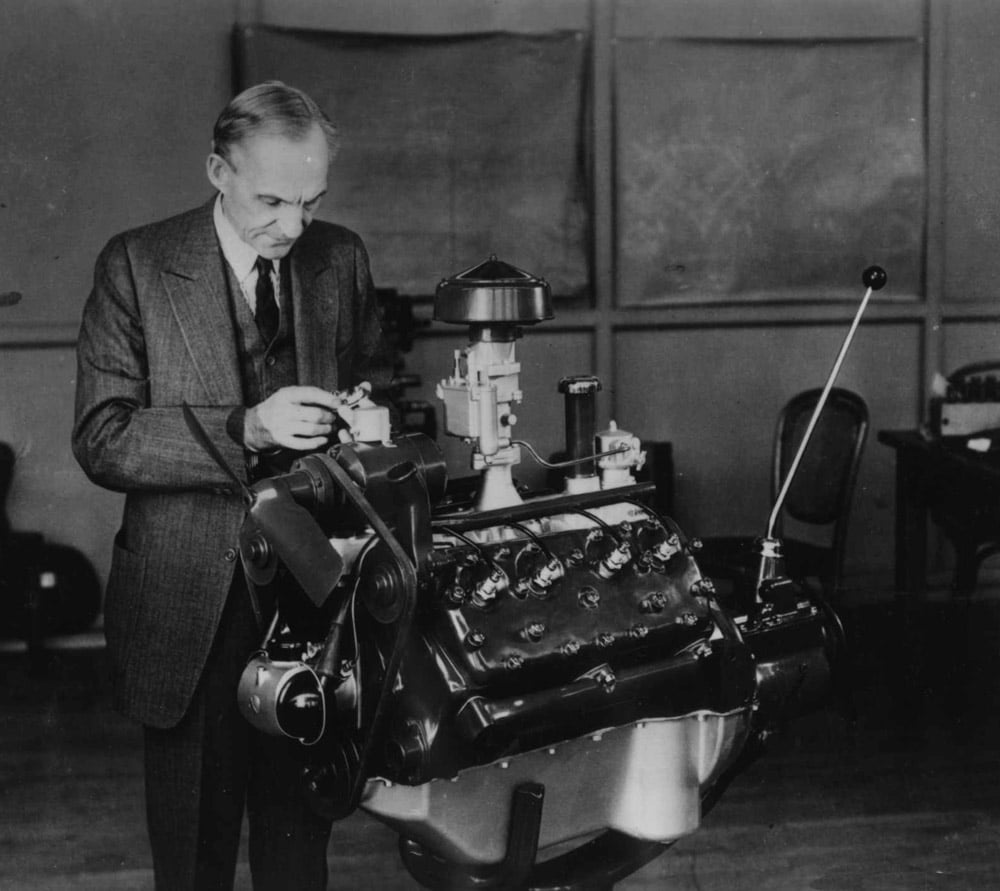
Life is a series of experiences, each one of which makes us bigger, even though sometimes it is hard to realize this. For the world was built to develop character, and we must learn that the setbacks and grieves which we endure help us in our marching onward.
Very few men will ever have the chance to completely revolutionize the American way of life; even fewer who do so will come from obscure backgrounds. Henry Ford was born in 1863 on a farm near Detroit, Michigan. His father wanted Henry to take over the family farm, but Henry had other plans. At age 16, he left home to become a machinist’s apprentice. After several years, he returned to farm work, and also ran a sawmill. But his love for engineering kept calling him away. In 1891, Ford was hired by the Edison Illuminating Company, and he worked his way up to chief engineer. He saved money scrupulously until he had enough so he could quit and work on his experiments with gasoline engines.
Ford began creating and testing self-propelled vehicles, but could not produce them cheaply and efficiently as he desired. With this goal in mind, Ford and partner Alexander Malcomson founded Ford Motor Co. Ford’s technical smarts were matched by his business savvy. He offered his auto workers $5 an hour, nearly double the going rate. The country’s best mechanics thus flocked to Ford, and this greatly slowed employee turnover and increased productivity. And he introduced moving assembly belts to his plants, which greatly improved efficiency. Such ideas helped make the Model T an affordable, immediate, and widespread success; half of all cars on the road in 1918 came from Ford factories. Ford found equal success with his next model, the Model A, which he had large part in designing. Ford secured sole ownership of the company for his family, expanded the business internationally, reaped a massive fortune, and introduced America to its ongoing love affair with the automobile.
Ronald Reagan, 1911-2004
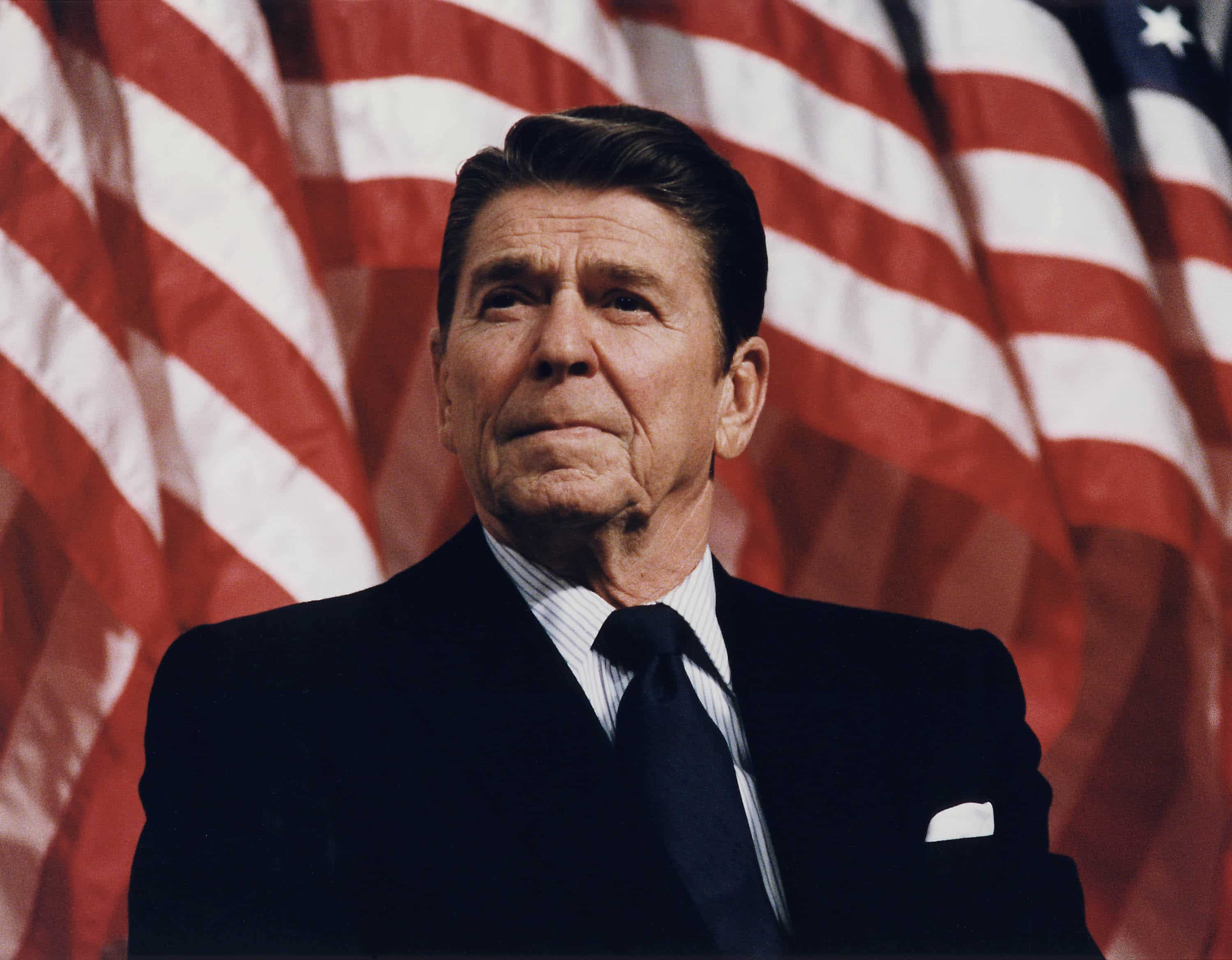
My philosophy of life is that if we make up our mind what we are going to make of our lives, then work hard toward that goal, we never lose - somehow we win out.
Any man who can turn an acting career into a successful run for the presidency certainly earns the title of self-made man. There was no silver spoon in the mouth of Ronald Regan when he came into the world in 1911. Born in Tampico, Illinois, Reagan’s father was a salesman who was always looking for better work. Reagan thus grew up moving from one tiny town in Illinois to the next, often living in apartments above banks and stores. The Gipper attended the definitively not ivy league Eureka College, mostly, by his own admission, to continue playing football. After college, he became a radio announcer and landed a film contract with Warner Brothers. After a stint in the military, Reagan became the president of the Screen Actors Guild. He began his foray into politics by working on Barry Goldwater’s campaign in 1964. Then in 1966, without holding prior political office, Reagan was elected governor of California. Though he failed to win the Republican nomination for the presidency in 1976, Reagan was not discouraged and won not only the nomination, but also the White House in 1980.
Andrew Carnegie, 1835-1919
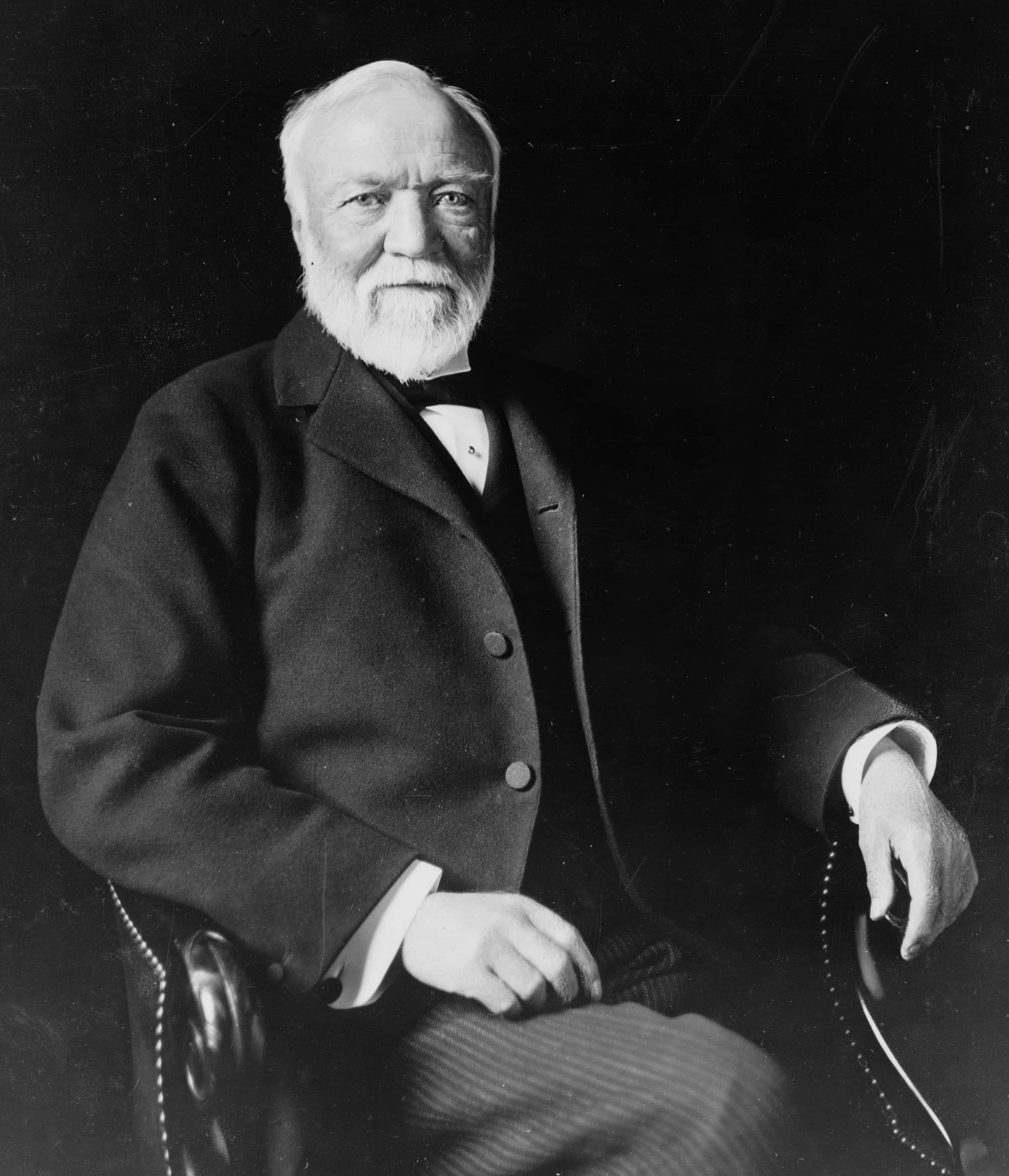
People who are unable to motivate themselves must be content with mediocrity, no matter how impressive their other talents.
Carnegie represents the epitome of the self-made man. His father was a Scottish hand-loom weaver, who moved with his family to America when Andrew was 13. Carnegie’s first job was working as a bobbin boy at a textile factory, making $1.50 a week. He subsequently took jobs as a boiler tender, bookkeeper’s clerk, and telegraph delivery boy. All the while he read to educate himself and worked to mitigate his thick Scottish accent. In 1853, Carnegie landed a job with the Pennsylvania Telegraph Co.
He religiously saved his money and reinvested it in the railroad business. He worked his way up to being superintendent of the Pennsylvania Railroad’s Western Division and then supervised the Union’s telegraph lines during the Civil War. He continued to make incredibly wise investments with his savings which reaped him handsome dividends. After the war, he left the railroad business and began to focus on building and investing in ironworks. By bringing great efficiency to the business, taking over one steel company after another, and utilizing vertical integration, Carnegie soon created an empire of steel and iron.
In 1901, Carnegie sold his steel holdings to JP Morgan for $480 million. Carnegie had long preached what he called “The Gospel of Wealth,” a philosophy in which a man should aim to acquire as much fortune as possible and then give it away to others. On this point, (unlike several others) Carnegie was a man of his word. During his lifetime he donated $350,695,653 to philanthropic causes; upon his death he gave away the last $30,000,000 of his wealth.
Booker T. Washington, 1856-1915
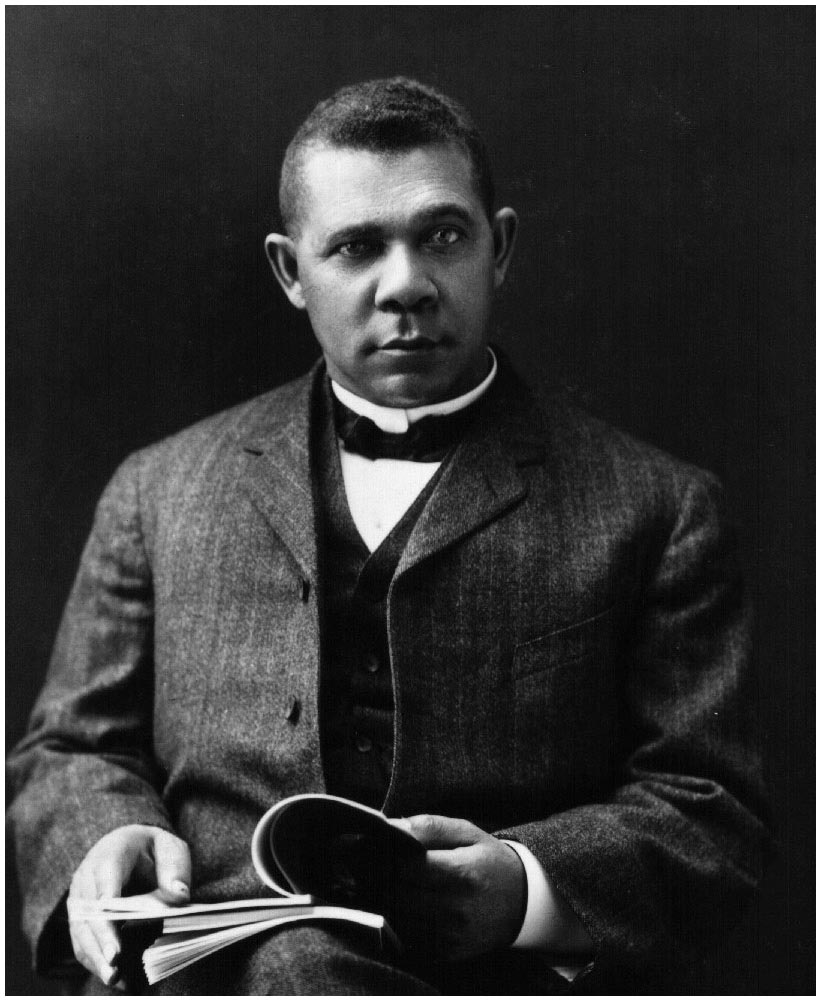
I have learned that success is to be measured not so much by the position that one has reached in life as by the obstacles which he has had to overcome while trying to succeed.
Booker T. Washington was often criticized by fellow African-American advocates like WEB DuBois for his approach to helping his people progress. While DuBois felt that the fight for civil rights should have the top priority, Washington argued that blacks had to first work hard, manifest the virtues of industry and thrift, and achieve economic success. Once this occurred, he argued, the rights they sought would naturally follow. While Dubois felt that this approach was harmfully accommodating, such a philosophy was a direct product of Washington’s personal experience, a life which had taught him that man can work to make of himself anything he desires.
Washington grew up as a slave until freed by the 13th amendment. As a freedman, he took work in salt and coal mines before entering Hampton Institute in pursuit of an education. The president of Hampton recommended that Washington be made the head of the newly formed Tuskegee Institute. From this position, Washington soon came to prominence as a nationally known advocate for the uplift and education of African-Americans. His efforts to befriend many of the rich corporate heads of this time and persuade them to donate their money to the education of his fellow freedmen met with great success and led to the building of over 5,000 schools in the rural South. His profile was further raised by the brisk sales of his autobiography, Up from Slavery, and his invitation from President Theodore Roosevelt to become the first African-American to dine at the White House
Milton S. Hershey, 1857-1945
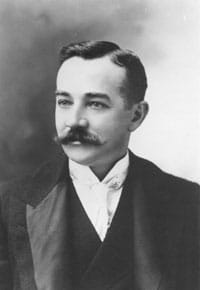
Milton S. Hershey had to face some bitter failure before he was able to achieve sweet success. Hershey was born on a farm in Pennsylvania in 1857. Due to his father’s frequent failed business schemes, the family moved frequently, and Milton’s parents separated. Hershey dropped out of school after the fourth grade. He was then apprenticed to a printer, but did not take to that line of work. He began an apprenticeship with a candymaker and after four years or learning the trade, attempted to open his own shop. This venture failed as did his two subsequent efforts in New York City and Chicago. At age 28, he returned home to Pennsylvania as an unemployed man who had thus far failed to make anything of his life. But Hershey’s luck would soon change; he started a caramel company and this time, his delicious confections caught on.
During his visit to the 1893 World’s Columbian Exposition, he became fascinated by the German chocolate making machines. He purchased them for his Lancaster caramel factory and began producing various chocolaty confections. Sensing the great potential in chocolate treats, Hershey sold his successful caramel company in 1900 for a whopping one million dollars. With this new wealth he bought 40,000 acres of land near Lancaster, Pennsylvania and built the world’s largest chocolate factory and a model town for his employees. He was determined to bring what was then a Swiss luxury product-milk chocolate-to the masses. He tinkered with the formula until Hershey’s milk chocolate was ready to be introduced to the public and become the necessary ingredient for s’mores.
Walt Disney, 1901-1966
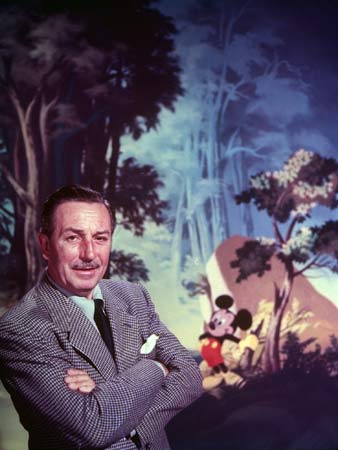
The way to get started is to quit talking and begin doing.
The man who would one day create the “happiest place on earth,” experienced a less than idyllic childhood. Walt Disney’s father wandered from one job to another looking to find success, and often needing to rely on his brother to stay afloat. Walt lacked not just financial security, but for affection; his father was a cold and abusive man. Walt was determined to blaze his own path of success and not end up like his dad. At age 16, he dropped out of high school and served in the ambulance corps during World War I. After the war, Disney found work creating ads for businesses in Kansas City. He was fascinated by the emerging field of animation and decided to set up his own animation business. Unable yet to manage money effectively, the business went bankrupt.
Then Disney set up a studio in Hollywood and began turning out cartoons, culminating in the enormously popular Steamboat Willie in 1928. Over the next several years, Disney introduced equally beloved characters such as Donald Duck, Goofy, and Pluto. In 1934, Disney began to work on his most ambitious idea yet: a full-length animated feature. Dubbed “Disney’s folly” by his critics, most thought the idea would spell the demise of the Disney studio. Instead, Snow White and the SevenDwarves was a smashing success. The film was followed by a myriad of other beloved full-length features and animated shorts. In the 1950’s Disney expanded the work of his company to include the production of live-action films. Disney also completed an ambitious project few believed could be a success: the 1955 opening of Disneyland. Disneyworld followed in 1964. Walt always understood the desires of average people. While critics lamented the artificially wholesome world depicted in his family-friendly movies and theme parks, the public fell in love with it and bought into Disney’s vision completely.
Barack Obama, 1961-
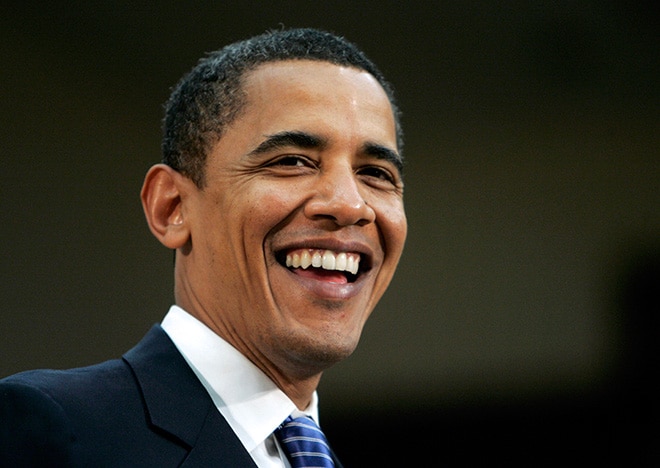
Making your mark on the world is hard. If it were easy, everybody would do it. But it’s not. It takes patience, it takes commitment, and it comes with plenty of failure along the way. The real test is not whether you avoid this failure, because you won’t. It’s whether you let it harden or shame you into inaction, or whether you learn from it; whether you choose to persevere.
His story is of course well known by now, but it bears repeating,and certainly merits him a spot on this list. Obama’s childhood was far from typical. Obama was born to a white mother and Kenyan father in Hawaii. His father went back to Kenya when he was only 2 and saw his son only once more. His mother married again, this time to an Indonesian, and the family moved to Indonesia. Barack lived there for several years and then returned to Hawaii to live with his grandparents. Obama graduated from Columbia University, worked as a community organizer in Chicago for 3 years, and then went to Harvard Law School. While there he became the first African-American to be elected as president of the Harvard Law Review. Obama returned to Chicago and spent 12 years as a professor at the University of Chicago Law School. He was elected to the Illinois State Senate in 1996, and the US Senate in 2004. After only one term as Senator, Obama won the presidential election and became the first black president in United States history.
Ben and Jerry, 1951-
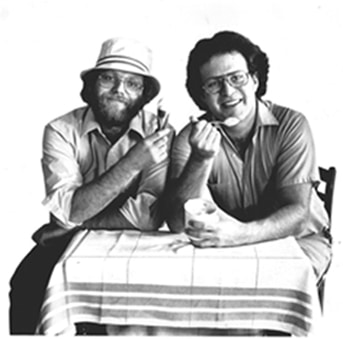
Ben Cohen and Jerry Greenfield were childhood buds who early on bonded over their preference for eating over gym class. After high school, Ben attended and dropped out of several colleges, never quite finding his calling. He eventually took a job teaching pottery on a farm in the Adirondacks. Jerry attended and graduated from Oberlin college. Upon graduation, he unsuccessfully applied for admission to medical school. When the guys met up again, both were rather adrift professionally. They decided to open an ice cream shop in Burlington, Vermont. After taking a $5 correspondence course on ice cream making, they opened their store in a dilapidated gas station. The guys’ rich, chunky ice cream gained a popular following in the community. They soon began selling pints of their ice cream to local grocery stores. During the next several years, Ben and Jerry were able to expand their franchise and by 1988 had stores in 18 states. Ben and Jerry’s became a nationally known brand, and the company was bought by Unilever in 2000 for $326 million dollars, enough to buy a whole mountain of Cherry Garcia.
John Sperling, 1921-
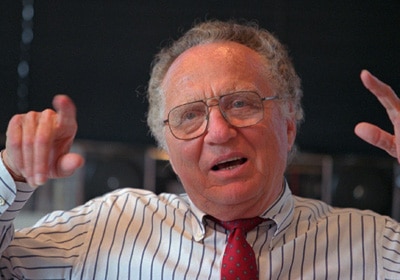
John Sperling was born to a poor sharecropping family and struggled in school. Dyslexic and semiliterate when he graduated from high school, Sperling joined the merchant marines and sailed the world. Along the way, he taught himself to read. During WWII, he served in the Navy. When the war ended, Sperling attended Reed College, completed graduated work at Berkley, and earned his Ph.D from Cambridge; his childhood teachers had clearly underestimated him.
Sperling spent the next couple of decades as a professor, but he never could shake his concern that colleges were filled with the middle and upper classes, while those who were not well-off were left out of academia. At age 53, he decided to do something about it. He tried to bring a program for working adults into the university but was rebuffed. So he created his own university for adults. In 1976, he started the University of Phoenix, a franchise that would quickly expand around the country. This for-profit enterprise not only gave working adults a alternative for regular college, it made John Sperling a billionaire.
David Sarnoff, 1891-1971
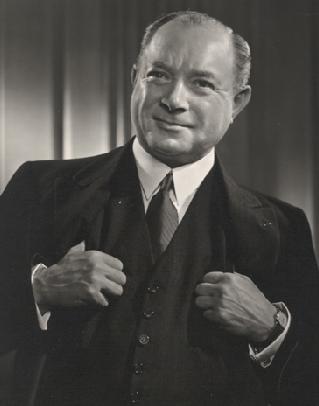
Success, in a generally accepted sense of the term, means the opportunity to experience and to realize to the maximum the forces that are within us.
David Sarnoff was born to a poor family in a small Jewish village in what is today Belarus. His talents were recognizable from a young age, and his family planned on David becoming a rabbi. These plans were interrupted when the family emigrated to the United States in 1900. Living in New York City, young David helped support the family by selling newspapers before and after school. Then, when his father was stricken with tuberculosis, David was forced to become the man of the house and its main breadwinner. He found a position as the Marconi Wireless Telegraph Company of America. Sarnoff worked hard to educate himself to the ins and outs of the communications business and steadily rose through the company ranks. He paid close attention to the developing radio technology and suggested to his superiors that they begin to design and build a radio for the average consumer. His idea for a “radio music box” was ignored by his bosses at the Marconi company, and his ideas continued to fall on deaf ears when the company was bought by GE and became RCA.
Yet, as the 1920’s dawned and Sarnoff’s predictions about the popularity of radio were proved to be quite prescient, Sarnoff began to get the recognition and respect he deserved. RCA launched NBC radio in 1926, and only a few years later, Sarnoff was made its president. After building the AM radio business into a success, Sarnoff turned his attention to the television, which he sensed was going to be bigger than radio. Sarnoff, now the president of RCA, invested heavily in the research and development of the new technology. His gamble paid off when NBC introduced television to the American public at the 1939 New York’s World Fair. The next day, RCA began selling their television sets in stores. The television business exploded after the war, and Sarnoff again led NBC to dominance by being first to introduce color television to the country.
Arnold Schwarzenegger, 1947-
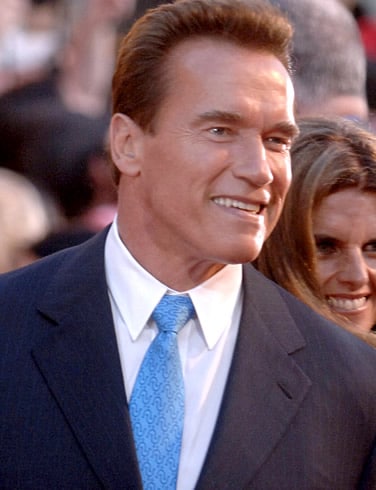
For me life is continuously being hungry. The meaning of life is not simply to exist, to survive, but to move ahead, to go up, to achieve, to conquer.
Sharing much in common with another famous actor-turned-governor-of –California, Arnold Schwarzenegger made the improbable leap from bodybuilder and actor to politician. Arnold was born in a small village in Austria. His cold and abusive father was the local police chief, and yet money was always tight for the family. Life in the unhappy household left Arnold determined to leave home and find fame and fortune. Deciding at an early age to make bodybuilding a career, Schwarzenegger started pumping iron at age 14. He also studied psychology to better sharpen his mind’s strength and willpower. Nothing could keep Schwarzenegger from his love of bodybuilding; as a youth he busted into the gym when it was closed on weekends and as a soldier he went AWOL to enter a competition.
Years of sweat and toil paid off when Arnold, at age 20, became the youngest ever winner of the Mr. Universe competition, a title he would win four more times. He continued training while simultaneously attending business school and working at a gym. At age 21, he moved to America to become a star of the silver screen. He continued to compete in bodybuilding and won the Mr. Olympia title seven times.
Arnold’s entrance into film was far more difficult than his workouts. With a thick accent and bulking body, he met many rejections before finally landing roles. After becoming a blockbuster action-star, Schwarzenegger’s next obstacle to conquer was politics. In 2003, overcoming his inexperience, accent, and having appeared in as Mr. Freeze in Batman and Robin, Arnold won the California recall election and became the governor or California.

